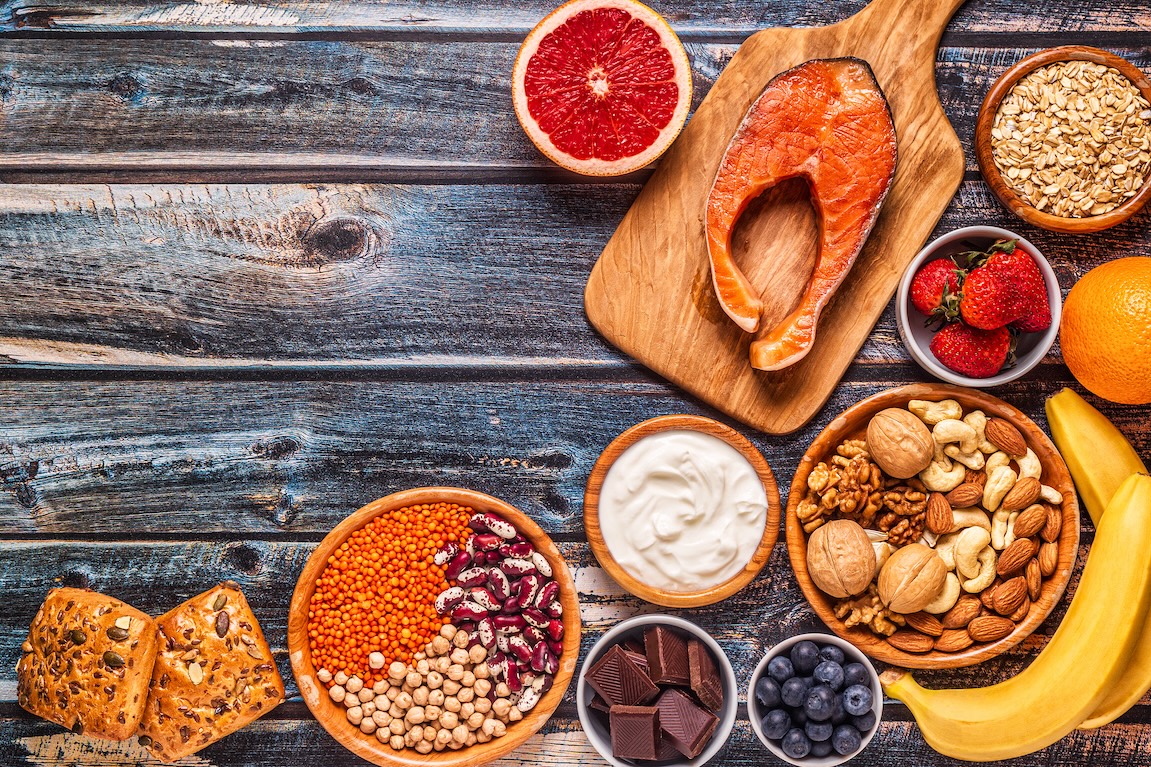
When it comes to our overall well-being and psychological health, we often think of physical exercise, meditation, and sleep, but one essential component of mental health is frequently overlooked: nutrition. In this article, we'll delve into the connection between mental health and nutrition, and how this combination can enhance your quality of life.
1. The Significance of Nutrition for Mental Health
When discussing mental health, it's vital to realize that our brain is an organ that requires proper nutrition to function effectively. Certain foods can uplift our mood. A balanced diet provides the crucial nutrients our brain needs to maintain optimal cognitive functions, regulate emotions, and prevent mental disorders.
2. Key Nutrients for Mental Health
Omega-3s
Omega-3 fatty acids, found in fatty fish, nuts, and flaxseeds, are essential for our brain's proper functioning. They help reduce inflammation and support mental health. You can source omega-3s from foods like salmon, mackerel, nuts, chia seeds, and flaxseeds.
Practical Tips:
- Add a tablespoon of ground flaxseeds to your yogurt, smoothies, or oatmeal.
- Opt for grilled salmon as a protein source in your salads.
Antioxidants
Antioxidants, present in colourful fruits and vegetables, protect our brain from oxidative damage and may help prevent depression and anxiety. You can get antioxidants by consuming foods like berries, citrus fruits, spinach, carrots, and bell peppers.
Practical Tips:
- Incorporate spinach into your omelettes or smoothies.
- Add berries to your oatmeal or yogurt.
B Vitamins
B vitamins, found in green vegetables, whole grains, and legumes, are vital for the production of neurotransmitters that regulate mood. You can source B vitamins by including foods like spinach, lentils, nuts, sunflower seeds, and whole grain cereals in your diet.
Practical Tips:
- Try a spinach salad topped with nuts and sunflower seeds.
- Switch your white rice for whole grain rice to get more B vitamins.
Slow Carbs
Slow carbs, found in whole grains, vegetables, and legumes, provide a stable energy source for the brain and help maintain mood stability.
Practical Tips:
- Choose millet over couscous.
- Make a homemade soup with plenty of vegetables and add lentils for an extra touch of slow carbs and fibre.
3. Probiotics and Mental Health
Let's now discuss probiotics, the beneficial microorganisms living in our digestive system. Probiotics play a pivotal role in our mental health in several ways:
- Mood Regulation: Probiotics can influence the production of neurotransmitters like serotonin, crucial for mood regulation. A healthy gut microbiome can promote a positive mood.
- Reducing Inflammation: Imbalances in gut flora can lead to chronic inflammation, linked to mental disorders. Probiotics can help reduce this inflammation.
- The Gut-Brain Connection: There's a close connection between the gut and the brain, known as the gut-brain axis. A healthy gut microbiome can contribute to better mental health.
Incorporating Probiotics into Your Balanced Diet
Probiotics can easily be integrated into a balanced diet. Here are some ideas:
- Plain Yogurt: Go for plain yogurt, rich in probiotics, as a snack or added to your smoothies.
- Kefir: Kefir is a fermented drink loaded with probiotics. Try it as an alternative to sweetened drinkable yogurts.
- Fermented Sauerkraut: Fermented sauerkraut is an excellent probiotic source. Add it to your salads or as a side dish to your main courses.
4. Keys to a Balanced Diet and Mental Well-being
A balanced diet is crucial for promoting good mental health. It involves consuming a variety of foods that provide all the necessary nutrients for your body. Here are some tips to achieve it:
Eat a Range of Foods
Consume various foods from all food categories, including fruits, vegetables, lean proteins, whole grain cereals, and low-fat dairy products. This ensures an adequate intake of essential nutrients.
Listen to Your Body and Avoid Restrictive Diet Pitfalls
Practice intuitive eating by heeding your body's hunger and fullness signals. Don't skip meals and avoid eating out of habit or emotion. We advocate for a respectful approach to intuitive eating, which emphasizes tuning into your body's hunger and fullness cues. It's crucial to steer clear of restrictive diets, which can lead to nutritional imbalances and mental health issues.
Limit Processed Foods
Cut back on highly processed foods high in added sugars, saturated fats, and salt. Instead, opt for fresh and natural foods. For healthier food substitution ideas, check out our top 12 homemade alternatives to ultra-processed foods.
5. Prioritize Your Mental Health with TeamNutrition
If you're keen to learn more about how nutrition, probiotics, and intuitive eating can boost your mental health, our team of dietitian-nutritionists is here to assist. We believe in a holistic approach to health, considering both your physical and mental well-being.
We hope this article has provided valuable insights into how nutrition, probiotics, and intuitive eating can bolster your mental health. If you'd like to learn more or schedule an appointment with a dietitian nutritionist, please reach out to us. Your well-being is our top priority at TeamNutrition.





